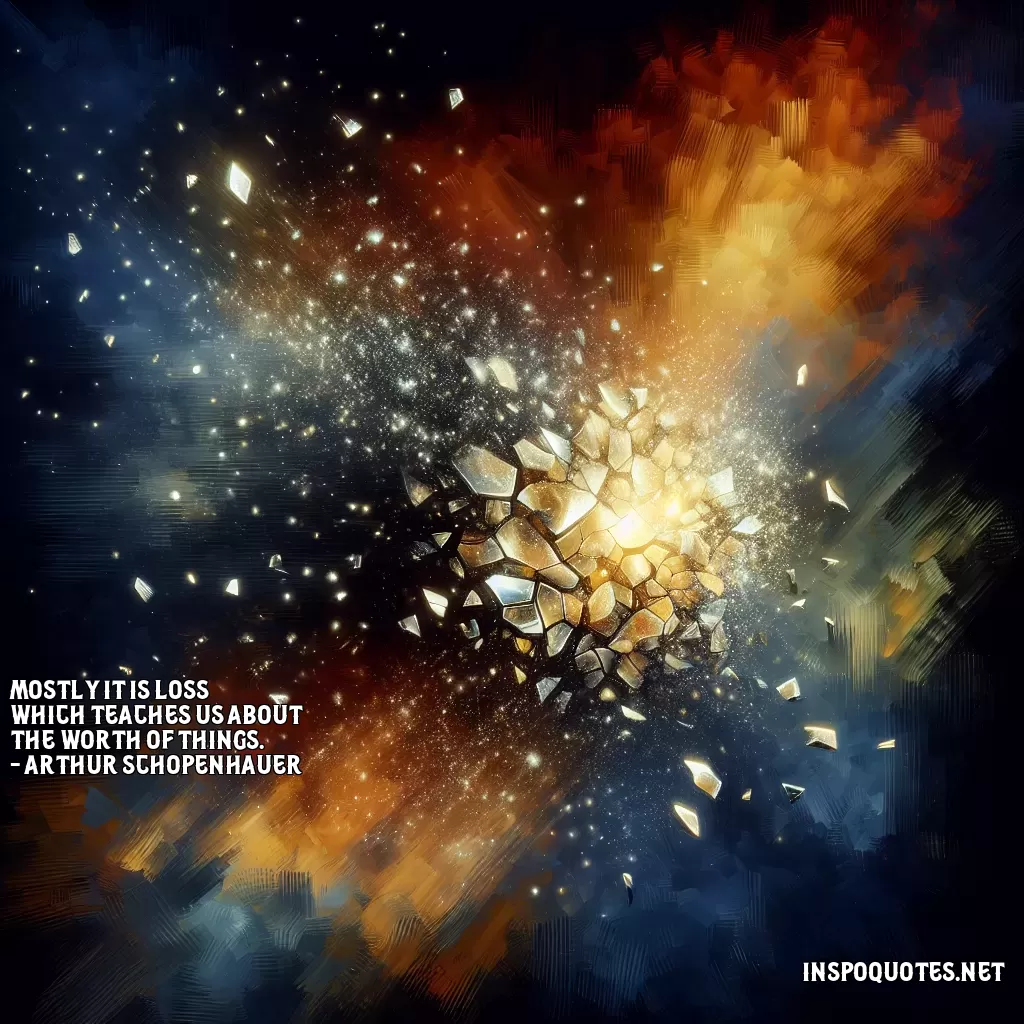
Mostly it is loss which teaches us about the worth of things. - Arthur Schopenhauer
Author: Arthur Schopenhauer
👁️ 21 views

Mostly it is loss which teaches us about the worth of things. - Arthur Schopenhauer
👁️ 21 views
Arthur Schopenhauer's quote, "Mostly it is loss which teaches us about the worth of things," reflects a profound observation about human nature and perception. The essence of this statement lies in our tendency to take the things we have for granted until they are no longer available to us. In everyday life, it is common for people to become accustomed to the people, possessions, and situations they encounter regularly. This familiarity often leads to a devaluation of their presence and significance. It's only when these elements are lost, whether through change, separation, or misfortune, that we begin to reflect on their true value. This experience of loss, while painful, serves as a catalyst for deeper appreciation and understanding. The process of losing something important often amplifies the absence it leaves behind. In this void, individuals are compelled to confront the significance of what once was, leading to a more profound acknowledgment of its worth. The appreciation that arises post-loss often comes with a degree of regret and learning that could enrich future interactions and relationships. Moreover, Schopenhauer's observation about loss can extend beyond material belongings to encompass relationships, health, opportunities, and time. It's a universal truth that resonates with many, driving home the point that loss is not just a feeling of deprivation but also an opportunity for introspection and personal growth. It encourages us to cherish what we have in the present, fostering gratitude and awareness in our daily lives. This understanding can enhance our appreciation of life's transient nature, motivating us to value and nurture what truly matters before it slips away.
Quote By: Arthur Schopenhauer
Arthur Schopenhauer (1788–1860) was a German philosopher best known for his pessimistic philosophy, which posited that human desire is the source of suffering. His seminal work, "The World as Will and Representation," argues that the fundamental essence of reality is a blind, irrational will driving all existence. Schopenhauer's ideas greatly influenced existentialism, psychotherapy, and later philosophers, especially Friedrich Nietzsche.
Bio added on: 2025-02-16 12:01:06